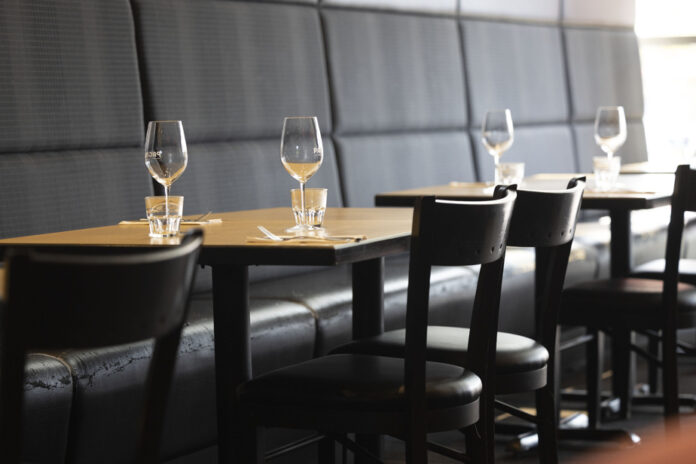The second portion of 2023 was catastrophic for many restaurateurs who do not hesitate to describe it as the “worst period” they have experienced. And the holiday season, a normally lucrative time, will obviously not do them any favors.
The number of restaurant bankruptcies in Quebec increased by 81.2% between October 2022 and October 2023 for a total of 337 since the start of the year, according to data provided by the Association Restauration Québec (ARQ).
“If we forget COVID-19, it’s going to be the worst year of my life,” bluntly says the owner of the Saint-Bock brewery, Martin Guimond.
He currently calculates making a quarter of the sales recorded in 2019, a pre-pandemic year. While his establishment on Saint-Denis Street in Montreal will celebrate its 18th year of existence in April, Mr. Guimond was not able to pay his rent on December 1. A first for him.
Fortunately for him, he says he has an “understanding” owner who he will meet shortly to “find a solution”.
Paid parking meters until 11 p.m. from Monday to Saturday in the city center, the increasingly deserted rue Saint-Denis and consumers’ tight budgets are all reasons contributing to a decrease in activity in Saint-Bock , according to Mr. Guimond.
And he’s not the only one counting empty tables. “I have been a restaurant owner for eight years and I would say that this is the hardest period, economically speaking, that I have experienced in restaurants,” says Pierre-Antoine Morency, co-owner of the Blanchette Morency Group which operates around ten of restaurants in the greater Quebec region (Bossini, Tartar
On average, it notes a 15% to 20% drop in attendance in its dining rooms compared to last year. Consumers who continue to sit at restaurants despite everything are likely planning a more modest budget for their outing.
Large chains are not immune to this phenomenon either. “I will not hide that we find it more difficult at the moment,” also recognizes Richard Scofield, president and CEO of the St-Hubert Group. We feel that there is a little less traffic than before. Our customers have not stopped coming, but they come less often. »
“The summer and fall were not good,” confirms the ARQ’s vice-president of public and government affairs, Martin Vézina. Yes, there was inflation. But we must also remember that we had ordinary weather. And people, when they think it’s going to rain every day, they go out less. »
Will consumers take advantage of the holiday spirit to go out to restaurants? Nothing is less sure. While the month of December normally allows operators to “build a cushion” in anticipation of the slow period of January and February, those interviewed by La Presse do not expect to break sales records this year.
“We think it’s going to be good. But if I compare to last year… I don’t expect increases, maintains Richard Scofield. If we can maintain what we had last year, I would be happy. »
“A lot of people are calling us to cancel. »
For his part, Pierre-Antoine Morency calculates that his sales will be worse than last year. “We had a pretty sad November. With the cold, you have to be motivated to go out to restaurants, especially when you’re tight. December is rather shy too. »
However, he adds that he has reservations for a few Christmas parties. “We worked very hard in advance to find these groups. »
After the holidays, the coming months do not look any rosier, we fear in the industry. Many restaurateurs who benefited from the Canadian Emergency Business Account (CEBA) during the pandemic have until January 18, 2024 to repay their loan if they want to keep part of it as a grant.
“I don’t know how I’m going to repay that, it’s impossible, I’m not capable,” confides Martin Guimond. My accountant and I are discussing how we could get into debt with the bank. »
“I want to pay it back, but I need time to do that. It’s time that’s against us. People no longer have money. They don’t go out anymore. It turns out that when you go to a restaurant, you have two beers and a hamburger, it costs you $50. »
Although he is confident that he will be able to get through the crisis, Mr. Guimond nevertheless believes that others will fall in combat. “There’s some skimming that’s going to happen. In January, it could hurt a lot. »
At the ARQ, we also fear that many owners will simply decide to withdraw. “There are some who may have difficult choices to make in the coming months,” concludes Martin Vézina.





